Conversation with Sophia-Yemisi Adeyemo
Interview with the recipient of the December edition of MyMA Artist Grant, Sophia-Yemisi Adeyemo.
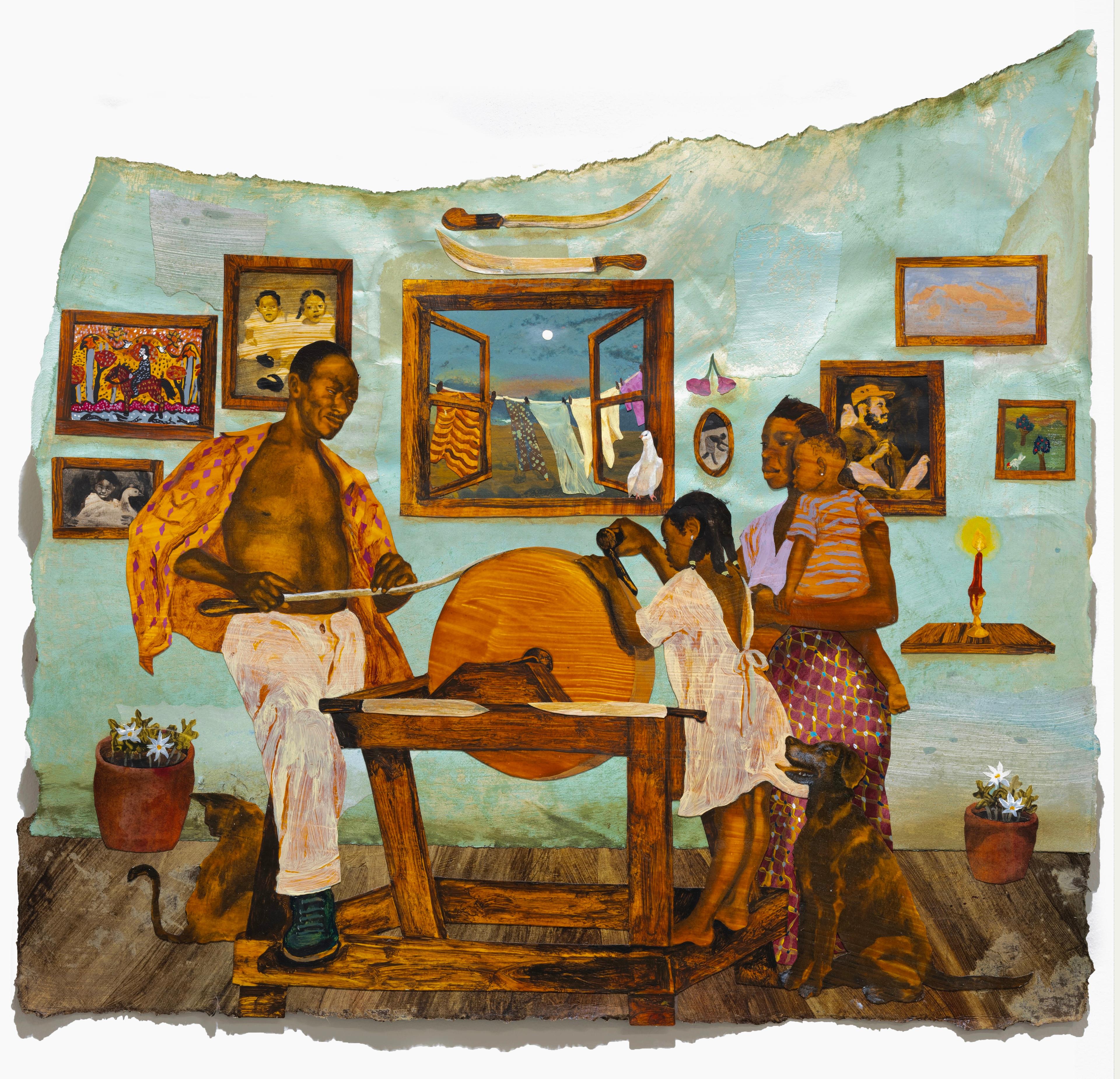
Congratulations on winning the December MyMA Grant! Can you tell us a little bit about yourself and your practice?
I am so elated to have been selected! I send my immense gratitude to the MyMA selection committee and to Widline Cadet! I am an artist of Nigerian descent based in New Brunswick NJ, and I'm currently working on my masters in fine art at Rutgers University. My work addresses themes around Black fugitivity, resistance, liberation, land, food, struggle, and community.
How do you approach the intersection of the fictional and historical in your art?
I’m interested in foraging history as a way of learning and adapting liberatory visions in my work. Historical revolutionary movements, structures, and ideas – specifically regarding agrarian movements – are a really important part of how I imagine the scenes in my work. Being informed by history allows me to better envision the “fictional” aspects of my work. Although I think “fiction” is a tricky word because it implies something completely untrue. I believe in the power of mobilization, and liberation struggle, so i don't consider my work to be inherently fictional. Rather, I see my work as historically informed manifestations of something that is within reach; a means of envisioning a resistance-based approach to decolonized food systems, land relationships, and labor practices.
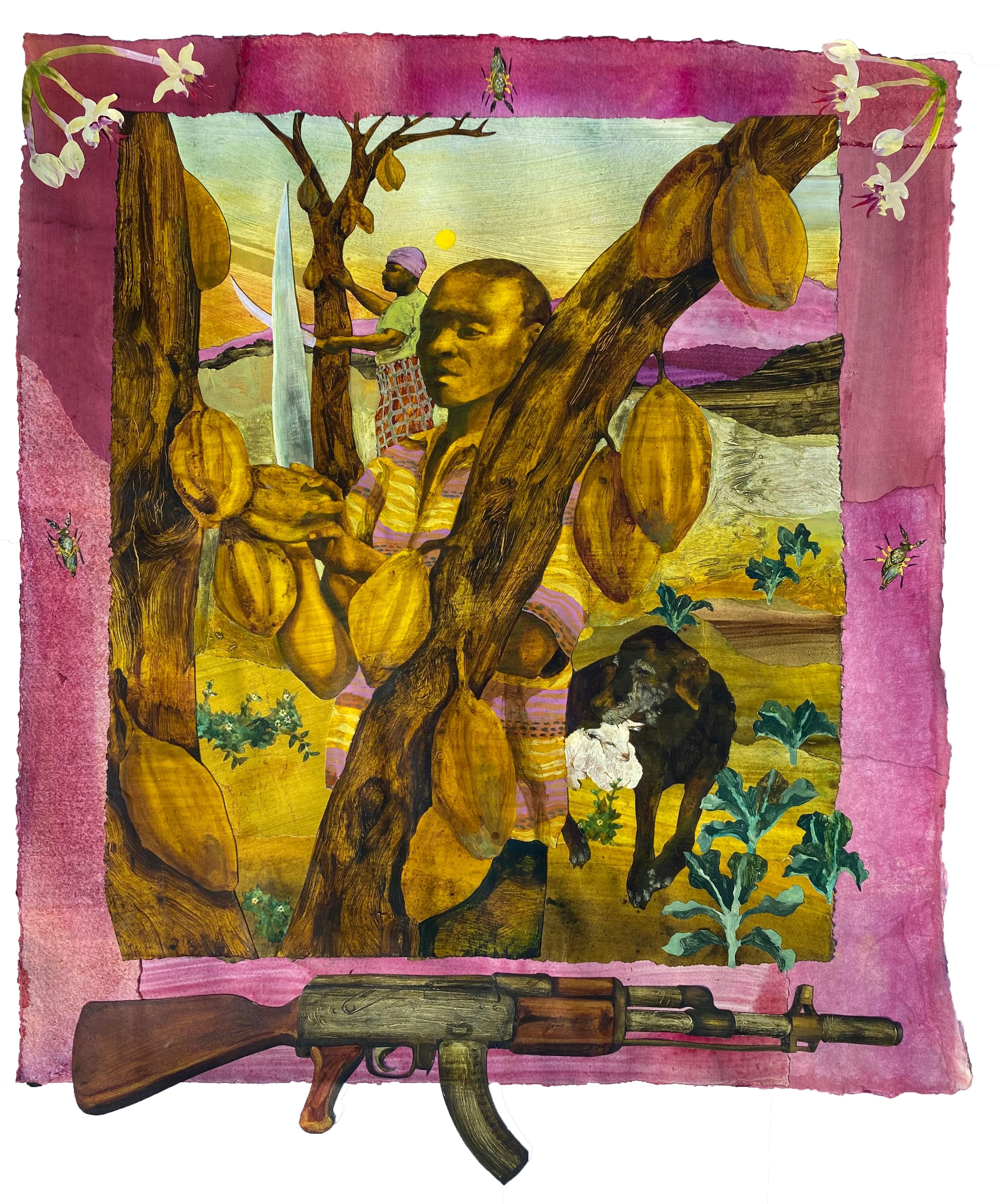
How do you hope viewers will engage with and interpret your art? Are there specific emotions, thoughts, or reflections you aim to evoke through your work?
When I had my first solo show at BRIC in Downtown Brooklyn – two years ago, now– that was what really solidified how I envision community engagement with my work. The show was so generously received. Someone wrote in the guest book that the experience made them feel “safe, protected, and ready to fight”. I couldn't imagine a better response to what I try to convey through my work. For folks to remember where we’ve been, where we are, and where we can go through struggle.
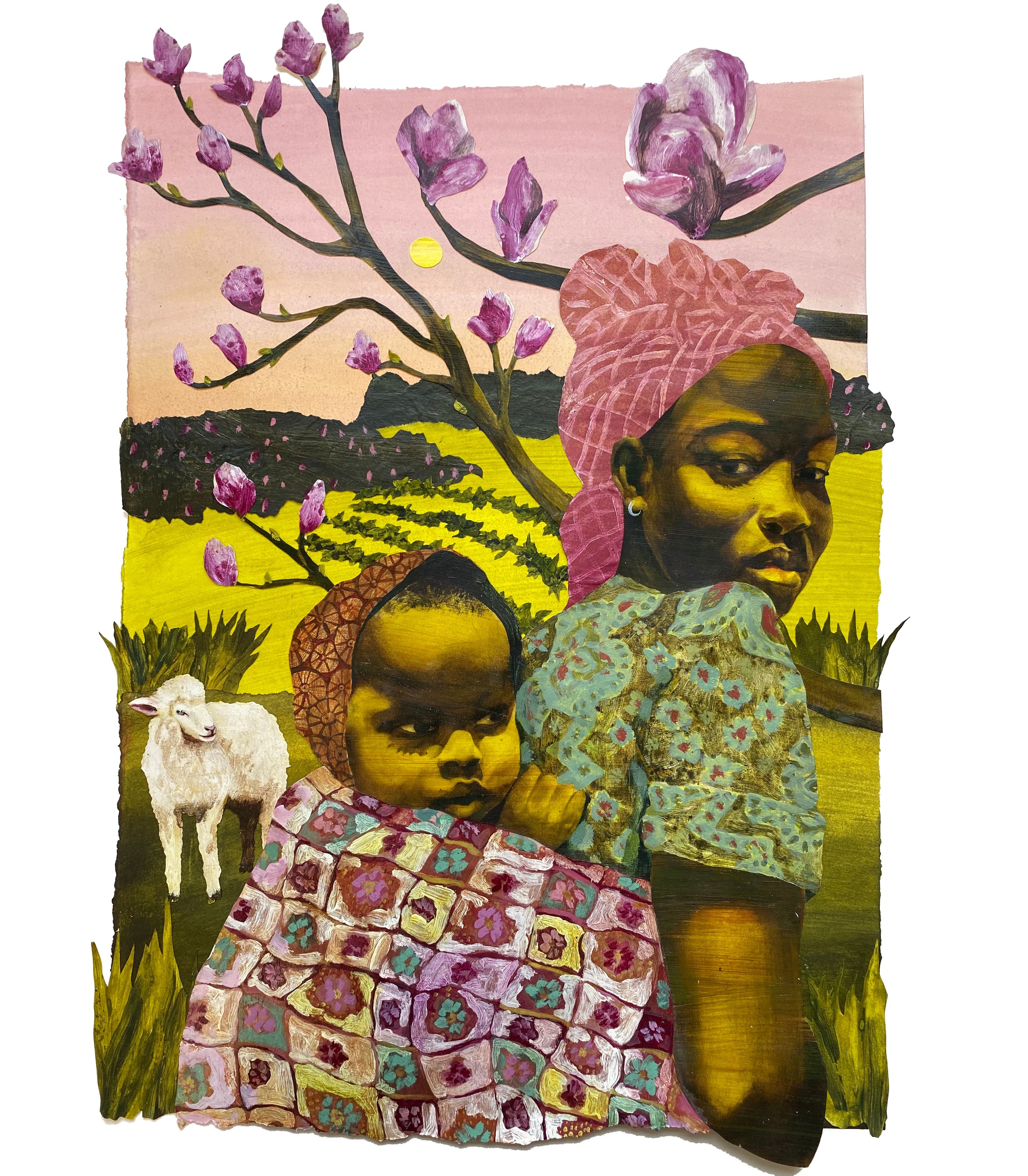
Your work spans multiple disciplines– moving between and combining painting, sculpture, and collage. Can you talk a bit about working across disciplines?
I have been working two-dimensionally for so long, that this recent venture into sculpture has been really exciting. Being in grad school has really given me the space to completely redevelop my material modes of making. It has opened up a whole new landscape of possibilities and concerns.
Were there any artists, movements, or cultural phenomena that had a significant impact on your artistic development?
After having a pretty traditional/formal western art education, I remember it was such a game changer when I came across the OSPAAAL political posters of the 60’s and 70’s, as well as the work of Emory Douglas. They taught me how images can be bold, blatant, unapologetic, and even militant, while also being visually stunning.
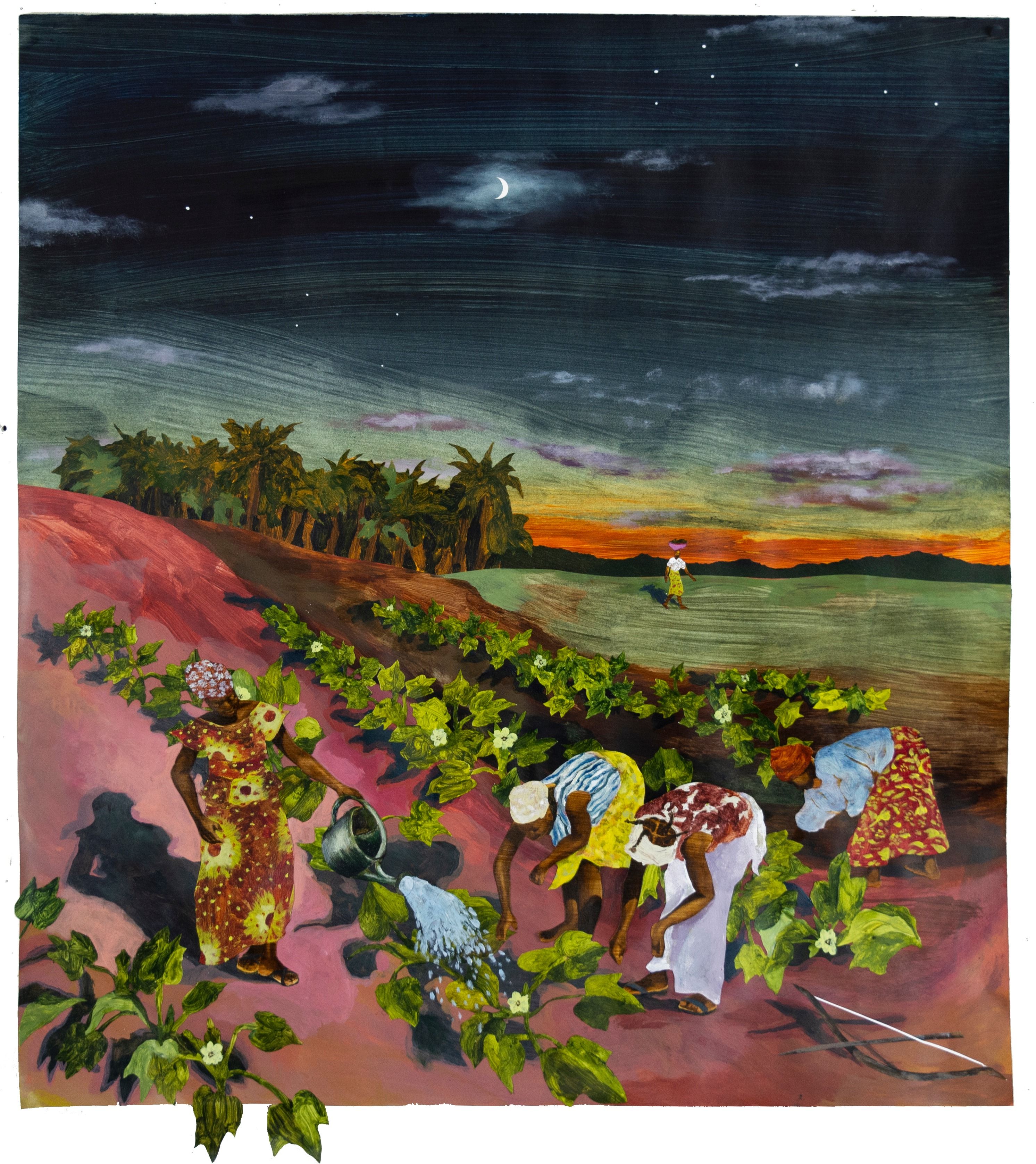
How do you get into the creative zone?
I really don't know. Oftentimes I don't totally feel in control of that. There are days that I feel completely disinterested or frustrated with making, and other times that I gotta rush to the studio because I feel that itch to work on something. I used to try and force myself to work even when I wasn't feeling it, but I’m not interested in how that impulse is connected to ideas of capitalist productivity. These days, I try to respect my energy and will focus on other tasks if I’m not in the creative space.
Do you listen to anything in the studio? If so, what are you listening to?
Anything from Bronx drill, to Afrobeats, to Orchestra Baobab. It depends on what the energy is in the studio that day.
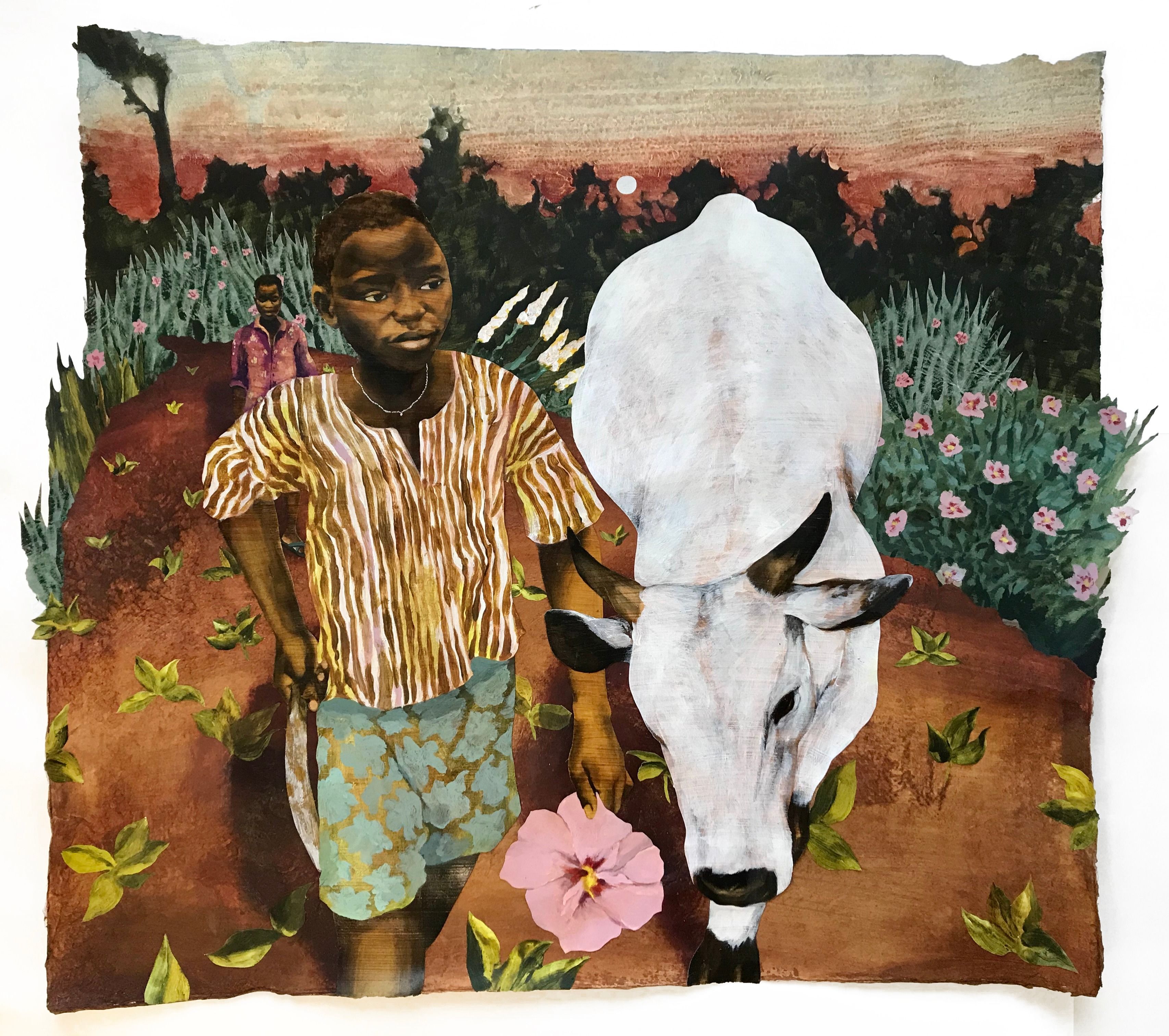
What is the best advice you have received?
Someone once told me that my power when navigating the art world, especially as a Black woman, is knowing when to say no. I think there's so much power and agency in that.
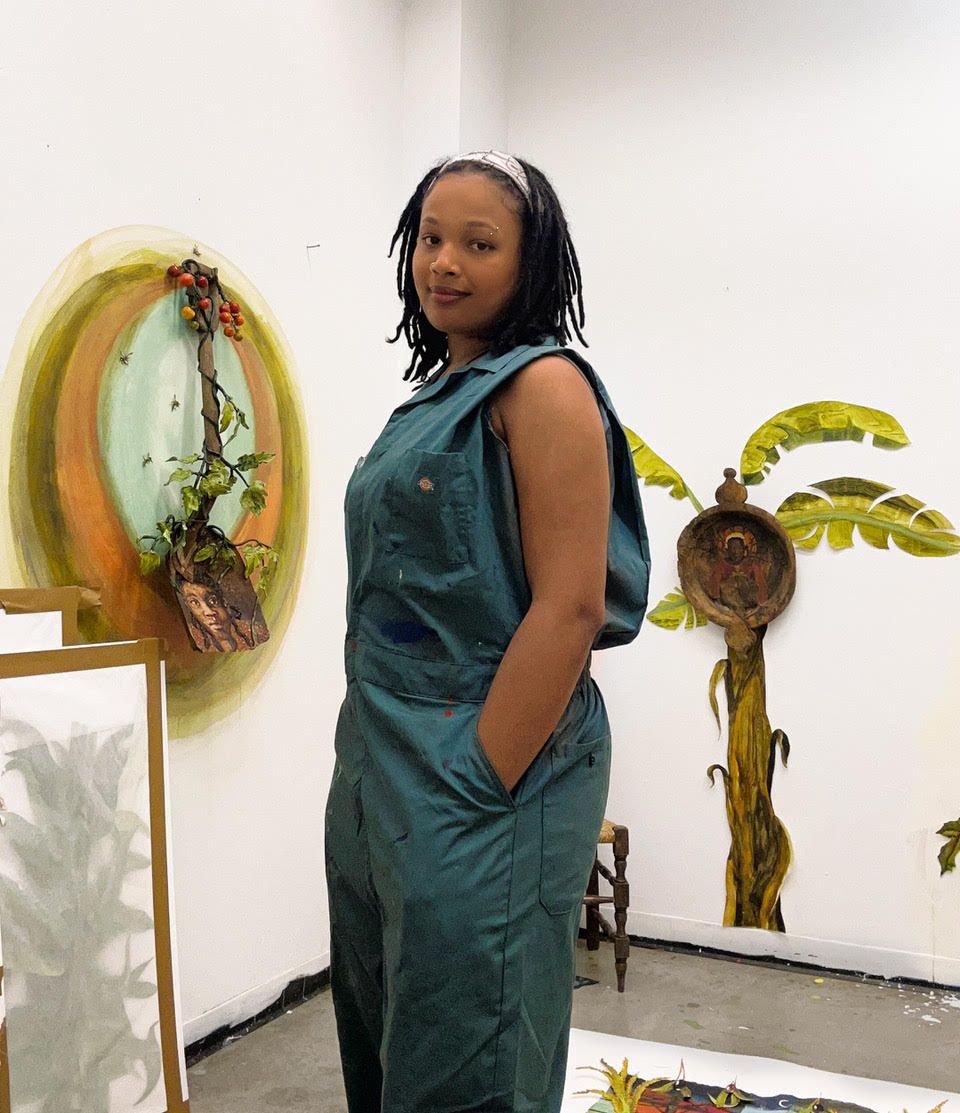
All images are courtesy of the artist.